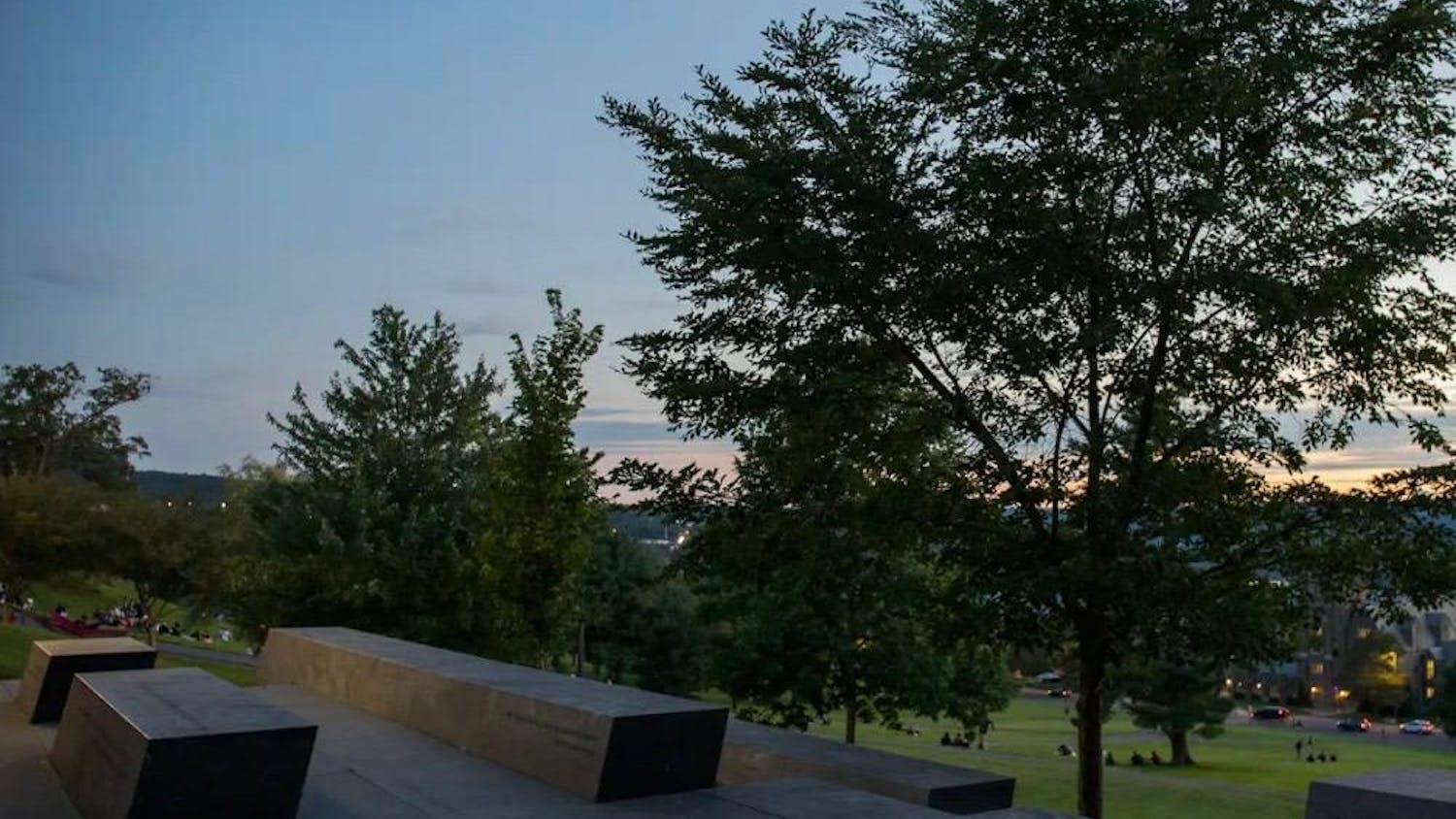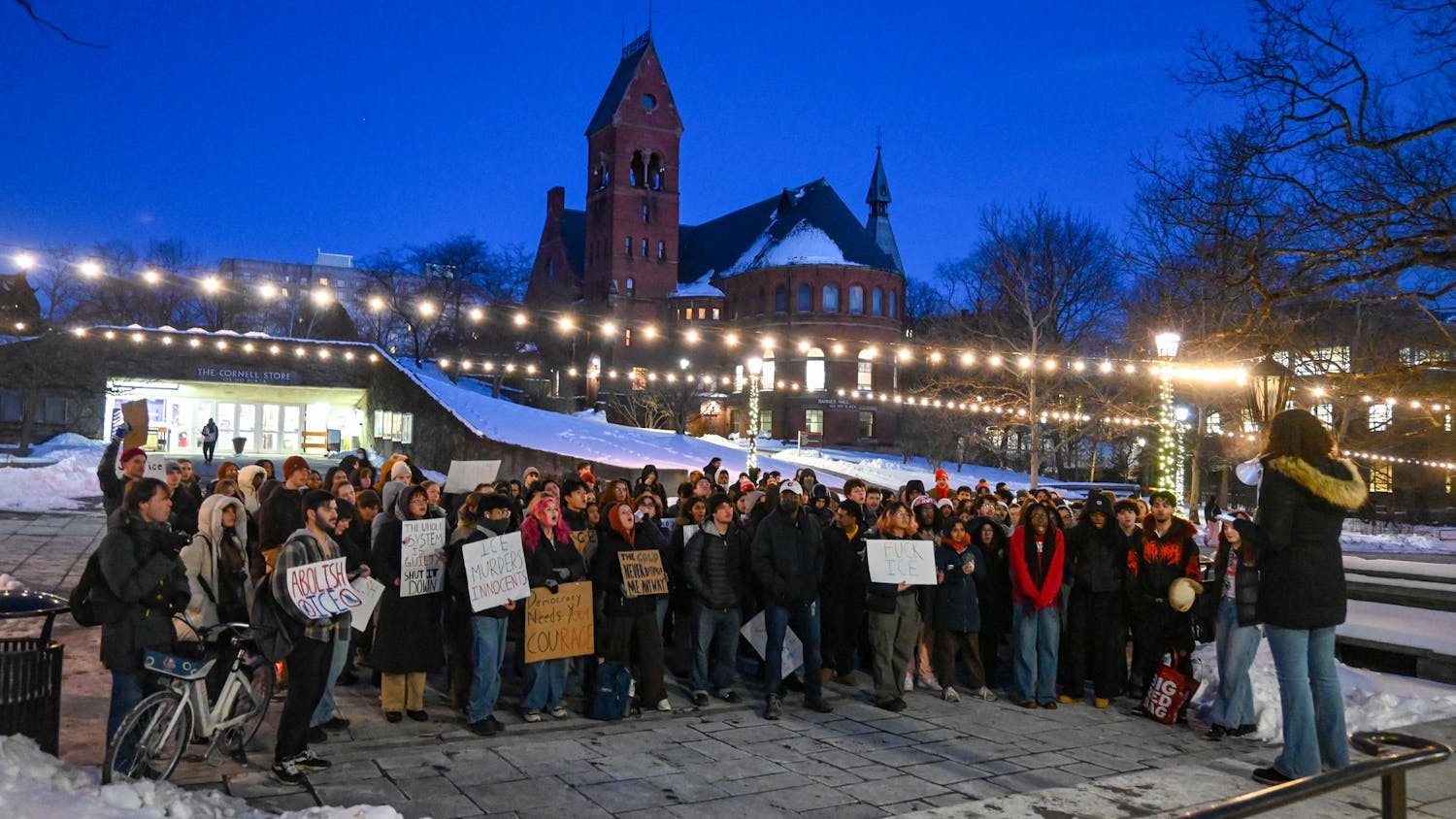In a stark contrast to the last meeting, rife with chaos and hostility over Cornell Police disarmament, this week’s Student Assembly meeting was calmer and more orderly.
After the contentious Nov. 19 meeting, many S.A. members and organizations like the Cornell Abolitionist Revolutionary Society advocated for a revote on the disarmament resolution, which failed 14-15-1.
But a revote never materialized on Thursday, although S.A. President Cat Huang ’21 said that one could possibly take place next week.
College of Agriculture and Life Sciences representative Carlo Castillo ’22 previously said he would switch his “no” vote to a “yes” and wanted a recount to take place. Since Castillo did not attend the Thursday meeting, a revote was not held as no other S.A. members who voted against the resolution motioned for one.
Instead, the S.A. voted on two code of conduct resolutions — right on the heels of a Board of Trustee vote over the code of conduct revisions set to take place Dec. 10.
The first code of conduct resolution urged Cornell to allow the University Assembly to maintain jurisdiction over the code, rather than giving Vice President for Student and Campus Life unilateral authority to alter it, a revision proposed by University lawyers.
The second resolution requested the Board of Trustees to indefinitely delay its Dec. 10 vote so students have more time to discuss and comment on the revisions — the deadline was Nov. 17. The resolution also demanded that the University be more transparent about the code of conduct changes.
The entire code revision process, which started almost two years ago, had been handed to the University’s lawyers after President Martha Pollack rejected the initial U.A. code draft in early May.
Logan Kenney, U.A. chair and third-year law student, first brought up the code of conduct revisions during the meeting’s open microphone session, saying that the S.A. did not discuss the proposed changes enough this academic year.
The resolutions, added to the S.A. agenda at the last minute by College of Arts and Sciences representative Evan Moy ’21, came as a response to the lack of student input into the code’s revision process — especially in regards to the University’s ability to change the code at will.
“There is nothing in the code, as it's currently written, to stop VP [Ryan Lombardi] from unilaterally making adjustments to the code of conduct,” said U.A. representative Bennett Sherr ’21.
After 20 minutes of extensions to the meeting, the resolutions passed unanimously: the first resolution passed 24-0-3 and the second passed 22-0-3.
The new code revisions have been criticized by community members. Judicial Codes Counselor Marisa O’Gara, a third-year law student, called the code process “punitive” and said the proposed changes would “take away the rights of students” if implemented.
This wasn’t the first time the code of conduct revisions had been discussed by the S.A. In April, former Student Advocate Liel Sterling ’21 presented a list of recommendations — including a reduced standard of proof and a smaller role for Cornell law code advisers — endorsed by over 30 student leaders.
The Office of the Student Advocate recommendations specifically included using a preponderance of evidence as the standard for administrative and hearing boards, and calling for Judicial Codes Counselors, Cornell Law students who advise students dealing with judicial proceedings, to become a part of a University “Office of the Student Code Counselors.” This office was intended to be open to non-law students and would represent both the accused and the complainants as a member of the Cornell administration.
“[The OSA code proposals] take into account the rights of respondents, complainants and the well-being of marginalized groups on campus,” Sterling wrote in a statement to The Sun in May. “I fear the continued feeling of silence and marginalization already felt by many on this campus that will persist if we do not finalize these changes.”
In a May 8 email rejecting the U.A.’s proposed changes, Pollack tacitly endorsed the OSA’s recommendations.
“Because the code is almost entirely directed towards students, it seems to me that the work of our duly elected student government should be seriously considered,” Pollack wrote.
The OSA proposals received scrutiny at a May 5 U.A. meeting, particularly for suggesting that a non-independent judicial codes counselor office should represent students.
The S.A passed the recommendations unanimously, but the quick turnaround of the vote cast doubts on whether the assembly understood the resolution’s ramifications. Nick Matolka ’21, a former S.A. undesignated at-large representative, told The Sun that the S.A. spent “approximately five minutes discussing it.”
However, the spectre of the failed CUPD disarmament vote continued to haunt the meeting — almost 200 people attended the meeting because of the possibility of a revote. Several attendees labeled themselves as “Yes Revote” or “No Revote” on their Zoom screens.
After the S.A. unanimously passed a resolution calling for the Cornell administration to support the Black Lives Matter movement, messages commenting on the S.A.‘s hypocrisy flooded the Zoom chat. The flurry of messages over the BLM vote prompted Huang to disable the chat.
“It’s the voting ‘yes’ for BLM but ‘no’ on police [disarmament] for me,” Sherell Farmer ’22, an organizer with Cornell Students for Black Lives and a co-sponsor of the disarmament resolution, wrote in the Zoom chat.
Correction, Dec. 4, 10:48 a.m.: A previous version of this article misstated the deadline for public feedback on the code of conduct revisions. The deadline was Nov. 17, not Dec. 7. The article has since been updated.
Correction, Dec. 4, 1:58 p.m.:A previous version of this article misattributed a quote to College of Arts and Sciences representative Evan Moy ’21. The article has since been updated.











